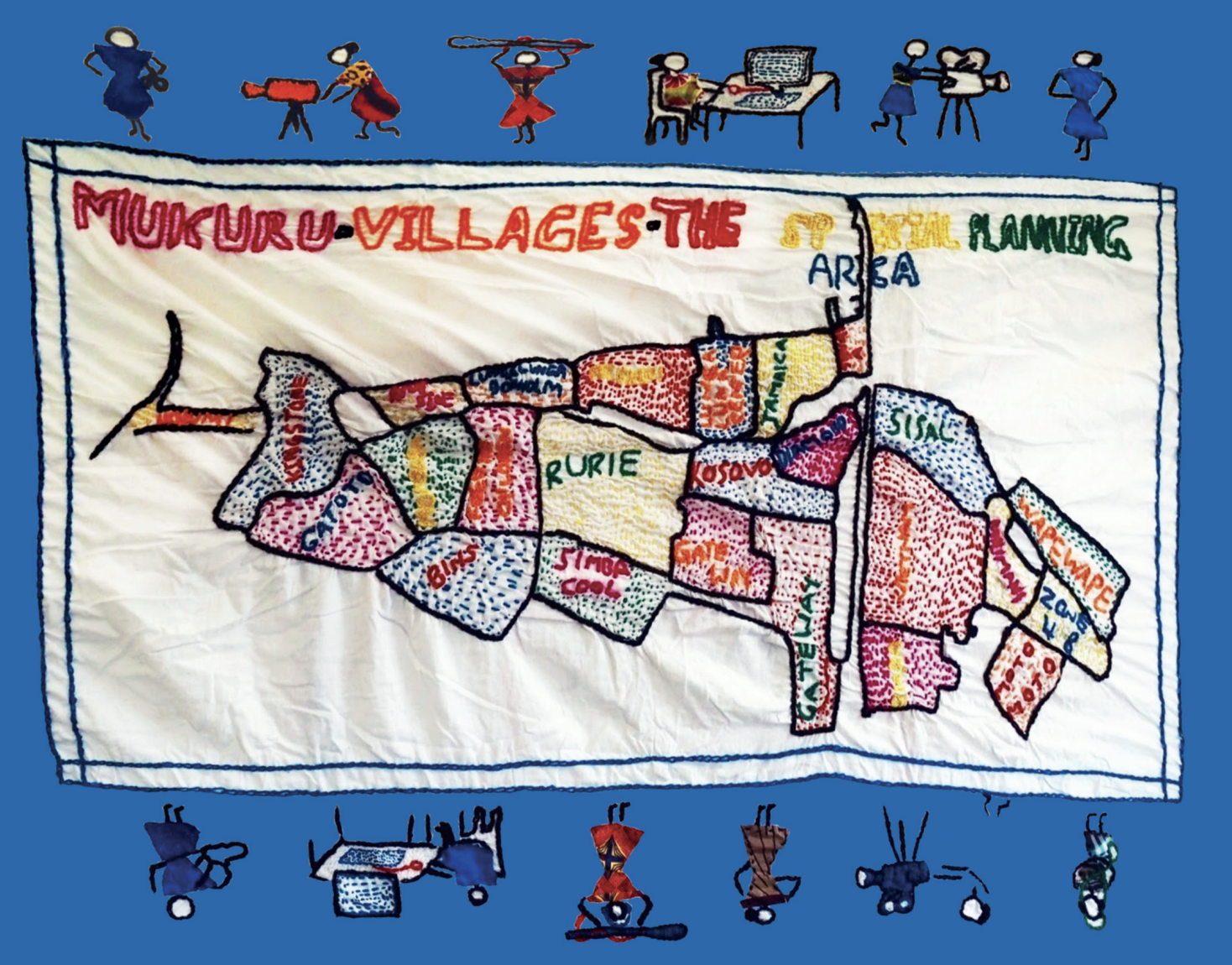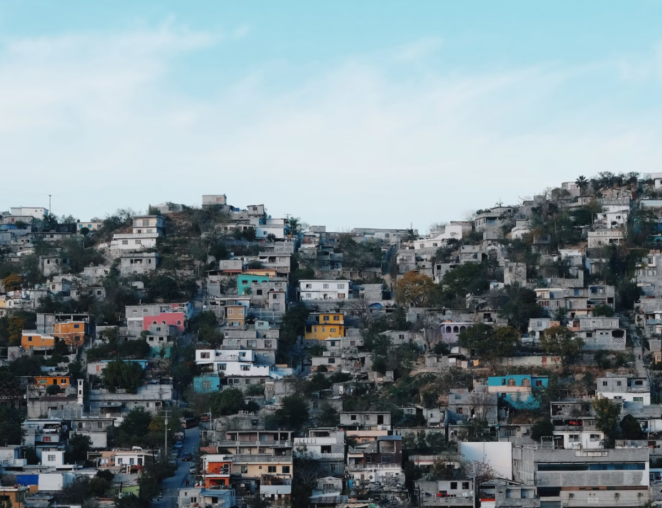Locally Led Planning: A Guide for Building Climate Resilience in Urban Informal Settlements

Introduction
This Guide provides resources for locally led, inclusive, multisectoral upgrading for climate resilience in urban informal settlements. Designed as a guide not a toolkit, it pays particular attention to context and its variation across cities and countries — the principles, guides and methods in this document must be translated to each unique context. It can help replicate the approaches and roles taken by institutions and people for comprehensive, transformative upgrading — based largely on the experience from the Mukuru Special Planning Area (SPA) in Nairobi, Kenya — but not the specific plans themselves. While the focus is on Africa, the lessons can be applied elsewhere as well.
This Guide aims to:
- Support national and local champions and local governments; communities; civil society and academia; and funders in undertaking multisectoral and inclusive upgrading to both build climate resilience in informal settlements and link locally led action with broader processes of urban and climate governance.
- Serve to convene discussions, provide questions and fuel your imagination to innovate the right approach for your context.
The Guide is designed as a living repository to evolve in tandem with the work of the Global Center on Adaptation (GCA), the African Development Bank (AfDB) and their joint initiative, the Africa Infrastructure Resilience Accelerator of the Africa Adaptation Acceleration Program (AAAP). It will both inform and be informed by practice on the ground. Future versions will incorporate lessons learned during ongoing efforts across Africa and beyond.
This article is an abridged version of the original text, which can be downloaded from the right-hand column. Please access the original text for more detail, research purposes, full references, or to quote text.
Data Collection
This section briefly outlines how the research for this Guide was carried out. It was conducted between March and October 2022 and included:
- Interviews and focus groups with residents of Mukuru Kwa Njenga, Kwa Reuben and Viwandani, members of the Kenyan urban poor federation Muungano wa Wanavijiji, local government staff, and civil society and academic partners;
- A survey for Mukuru residents with 183 responses;
- Ongoing conversations with the staff of the Akiba Mashinani Trust (AMT) and Slum Dwellers International-Kenya (SDI-K) as well as their Indian affiliates;
- Reviews of existing documentation, reports and articles.
Upgrading Informal Settlements for Climate Resilience
Explore this section of the guide (p.13-36) for summaries of key case studies in locally led, inclusive and multisectoral upgrading of urban informal settlements (such as the Mukuru SPA) and brief discussions of key concepts for the urgently needed local-to-international action to upgrade informal settlements for climate resilience.
Key messages:
- While upgrading is yet to be mainstreamed as climate change adaptation, it is a widely accepted practice in urban governance that can greatly increase the resilience of residents and infrastructure in informal settlements to climate change impacts.
- Social drivers of vulnerability like low-income and gender discrimination intersect with environmental risks.
- Upgrading alone does not ensure inclusion. Just because a local government undertakes upgrading does not ensure that all residents will be engaged, or benefit, equally.
- Informal settlements often play important roles in their city’s economy and therefore to its resilience to disasters and shocks.
- While upgrading reduces many climate-related risks, it has limits.
- Relocation is not viable unless it accounts for affordability, accessibility and quality.
- Look beyond hazards to consider root causes of risk and vulnerability and mainstream risk management into urban development.
- Elevate the role of local governments, community and government partnerships and community ownership in planning and decision-making to create locally-appropriate and enduring investments.
- Climate change concepts may be unfamiliar to some but social and economic vulnerability will not be.

The Mukuru Special Planning Area:
One of the largest informal settlements in Nairobi, innovative, locally led informal settlement upgrading strategies pioneered in Mukuru offer exciting and important lessons for inclusive and integrated planning as well as for enhancing the climate resilience of the majority of the population in African cities.
Underpinned by years of community organizing and protest as well as action research with university partners, Mukuru was declared a Special Planning Area (SPA) by Nairobi City County (NCC) in August 2017. The declaration acknowledged that conventional planning practices were insufficient to address the unique development and environmental challenges in informal settlements. Its application in Mukuru was a novel, innovative interpretation of the SPA provision which previously had only been used for industrial development areas.
The Mukuru Approach taught us that improving climate resilience in informal settlements requires the urgent coordination of at least four key strategies:
- The meaningful engagement of residents to make planning decisions.
- A genuine partnership between government, residents, civil society and academia.
- Rethinking conventional planning approaches and legislation to confront the vulnerabilities and resource scarcity in informal settlements.
- Recognizing the interdependent, multisectoral challenges faced in informal settlements.
Learn more about the Mukuru approach on pages 19-36.
Guides and Methods
This section (p.37-) provides in-depth discussions of key practices and methodologies as well as practical considerations for translating concepts to your context.
Guides and Methods are organized by theme (e.g. Roles; Community Co-planning; etc) and modularized by topic so that you can more easily pick and choose what is most relevant for your work. Additionally, each Guide and Method has target audiences to help you navigate to the ones that are most relevant to you.
Guides:
Guides discuss key practices in-depth. These concepts are highly sensitive to local context — each guide, therefore, includes practical considerations for translating concepts to your context as well as relevant case studies (Mukuru being the primary one).
Methods:
Methods are detailed methodologies that can be more directly replicated across cities and countries and aid the undertaking of concepts discussed in Guides. They also include examples of relevant data collection tools.
Audiences:
Each Guide and Method has target audiences to help you navigate to the ones that are most relevant to you. Because all the guides and methods are broadly of interest to all of the audience “personas”, the ‘Who’ is divided into two tiers:
- Most useful for: The primary audience — all sections of the guide/method are important for you, in particular the How, Considerations, Challenges, Examples from the Field, Materials and Example Materials sections.
- Also useful for: While not the primary audience, the guide/method will provide you with information on important concepts also applicable to your work. For guides/methods, you should focus on the high-level sections like What, Why, Where and When over the other, more detailed how-to sections.
Discover more about how to determine roles; negotiation and advocacy; community training; community-led data collection; community co-planning; and integrated planning in the guide!
Suggested Citation:
Global Center on Adaptation (2022). Locally Led Planning: A Guide for Building Climate Resilience in Urban Informal Settlements. Rotterdam.
(0) Comments
There is no content